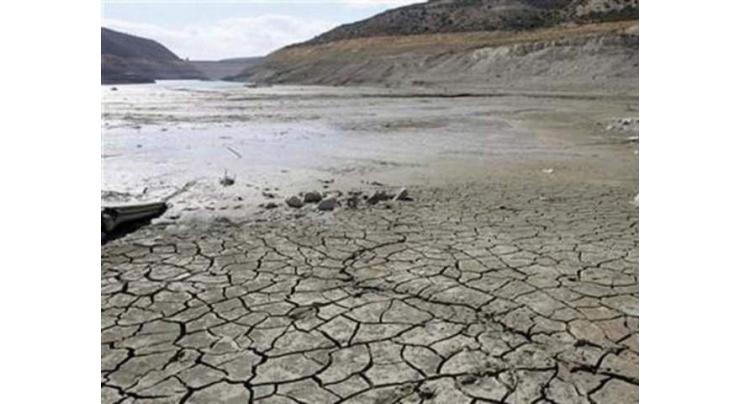
Rising Temperatures Will Mean More Deaths Globally, Say Scientists
Mohammad Ali (@ChaudhryMAli88) Published September 13, 2018 | 07:51 PM

Failure to meet global targets to control rising temperatures will mean more heat-related deaths, researchers said on Thursday.
ISLAMABAD, (UrduPoint / Pakistan Point News - 13th Sep, 2018 ) :Failure to meet global targets to control rising temperatures will mean more heat-related deaths, researchers said on Thursday.
Countries have signed the Paris Agreement on Climate Change to limit the rise in global temperatures to well below 2 degrees Celsius (3.6 degrees Fahrenheit) above pre-industrial levels, and ideally to 1.5 degrees Celsius.
An increase of 3 degrees Celsius or 4 degrees Celsius could raise mortality rates by between 1 and 9 percent, according to a study published in the journal Climatic Change.
"Currently, we are on a trajectory to reach over 3 degrees Celsius of warming, and if this trend continues there would be serious consequences for health in many parts of the world," said co-author Antonio Gasparrini in a statement.
Southeast Asian nations like the Philippines and Vietnam would be most affected by heat-related mortality, along with those in Southern Europe and South America, according to the report. A drop in cold-related deaths elsewhere would not be enough to offset overall increase, said researchers led by scientists from the London school of Hygiene & Tropical Medicine who looked at 23 countries for the survey.
A nudge in global temperatures from 1.5 degrees Celsius to 2 degrees Celsius would likely result in less than a one percent increase in related deaths in warmer regions such as Southern Europe, South America and Southeast Asia, they said.
The study did not take into account measures to adapt to rising temperatures, or demographic and economic factors, but those could have an impact when it comes to reducing heat-related deaths, said lead author Ana Maria Vicedo-Cabrera.
"Evidence so far suggests that we are adapting to heat, so we expect that in the future, maybe, the mortality risk due to temperatures could be lower compared to today, but still it's not clear," Vicedo-Cabrera told the Thomson Reuters Foundation.
United Nations Secretary General Antonio Guterres warned this week it could be too late to stop "runaway climate change" unless countries take action by 2020 to reduce global warming.
Recent Stories

One woman died after speedy bus overturned

155 killed in Tanzania as heavy rains lash East Africa

Parliament committed to resolve public issues on priority basis: Ghulam Mustafa

Collaborative Care of Diabetes Centre inaugurated in Faisalabad

3 'tandoors' fined Rs 15,000

Usain Bolt named ICC Men’s T20 World Cup 2024 Ambassador

Special education dept submits project for opening Autism School in Lahore

Macron warns 'mortal' Europe needs stronger defence

Thousands of flights scrapped as French air traffic controllers strike

SECP proposes amendments to General Takaful Accounting Regulations, 2019

PM visits martyred Customs official's residence in Abbottabad

Ethiopian Special envoy urges Lahore's traders fraternity to join trade delegati ..
More Stories From Science
-

China's Mars rover finds water evidence on the red planet: study
2 years ago -

China's top 10 advances in life sciences in 2021 unveiled
2 years ago -

Not quite $1: US chain Dollar Tree announces price hike
2 years ago -

Australian astronomers help solve galaxy "murder mystery"
3 years ago -

US-European Solar Orbiter Spacecraft Makes Venus Flyby - ESA
3 years ago -

Chinese scientists discover ultrahigh-energy cosmic accelerators in Milky Way
3 years ago
-

Universe becomes hotter over billions of years
3 years ago -

Researchers discover high-speed jet closest to black hole
4 years ago -
Scientists find gas on Venus linked to life on Earth
4 years ago -

Scientists find 'life harbouring' gas on Venus
4 years ago -

Scientists find way to track space junk in daylight
4 years ago -
Solar Orbiter gives scientists unprecedented look at Sun
4 years ago









